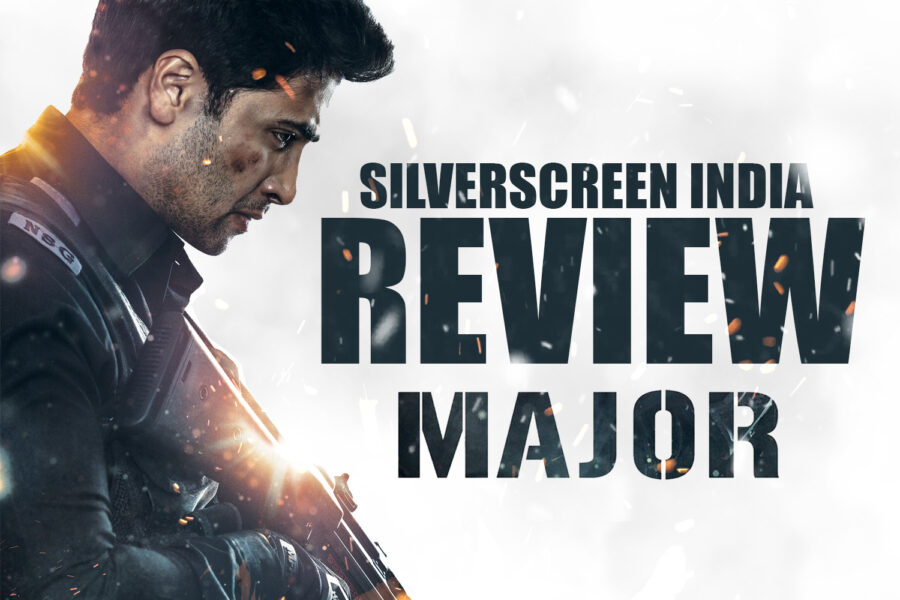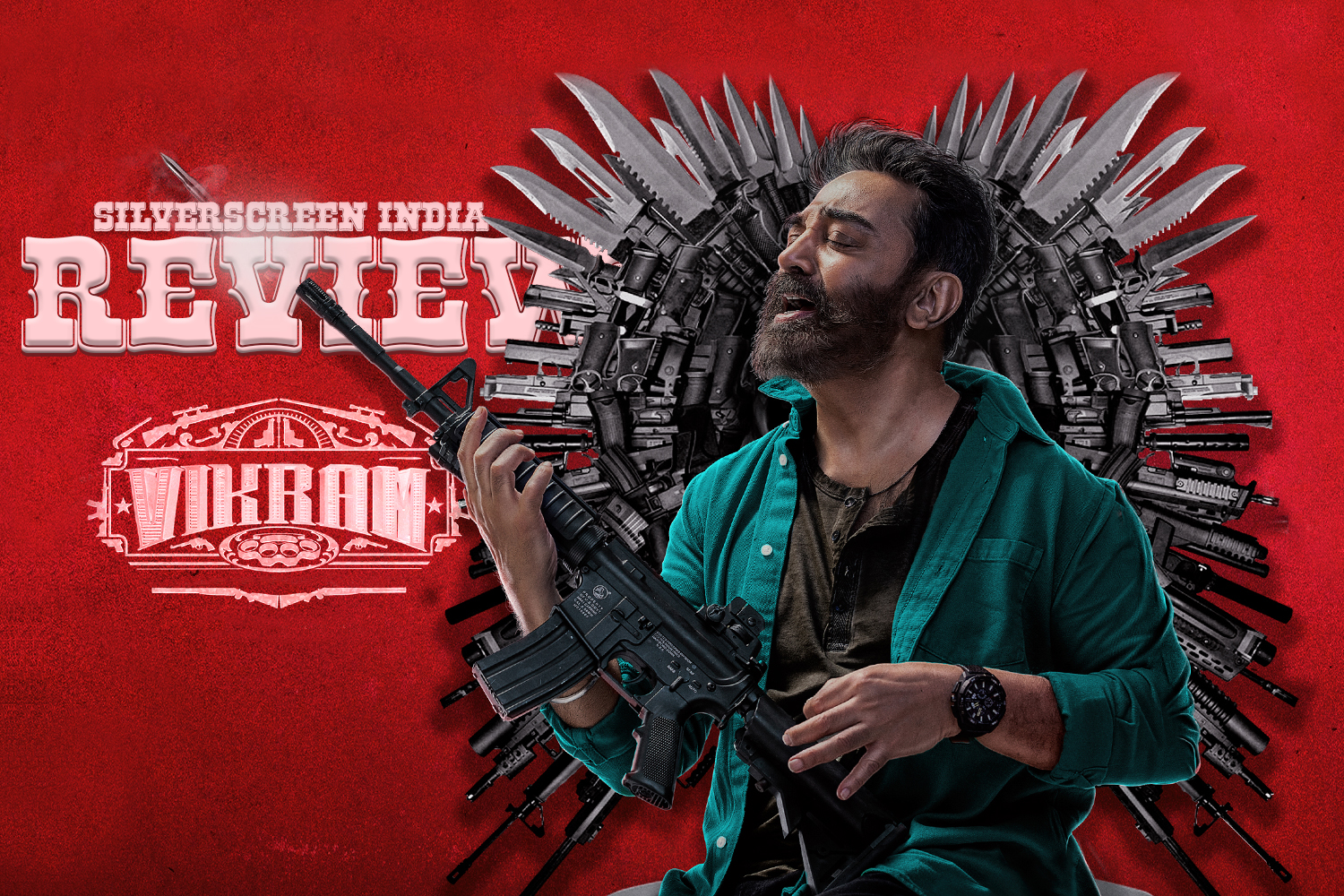Two big Indian films that came out in theatres this week, Major and Samrat Prithviraj, look back in time, quite in tune with the sentiments of a nation obsessed with its past. While Samrat Prithviraj is set in an ambiguous point of time where truth and myth lie mixed beyond recognition, Major is on the life of Major Sandeep Unnikrishnan, the 31-year-old Indian commando who died heroically fighting terrorists in the 2008 siege at Mumbai’s Taj Mahal Hotel.
Major, directed by Sashi Karan Tikka and written by Adivi Sesh who is now a seasoned on-screen soldier, proceeds from the perspective of a father (Prakash Raj) whose gaze is affectionate. He remembers Sandeep (Adivi) as a little boy who was as delicate as he was stubborn, now embalmed in stories about his heroism. Sandeep was not just a martyr; his death unfolded in front of the world, aired on television. The terrorist attack itself was dramatic, in the heart of India’s biggest city, hundreds of miles away from the conflict zones. Everything about Sandeep’s life, including his now-famous final words “Don’t come up”, was widely written about in media. And he came from a respectable family in Bangalore and was handsome in a conventional way, a boy-next-door.
Mainstream movies about the armed forces rarely discuss complex international relations or the country’s domestic tensions. They work like pamphlets of the defence academy, to cheer the soldiers and encourage the youngsters among the spectators to join the force. The war or combat missions in these films are lavishly filmed, to entertain and provoke the audience.
Major is not different in this aspect. But what makes it a slightly better film than the recent bout of films on nationalism is its constraint in expressing jingoism. The emphasise is on the stunts. The action scenes are slick ﹣ the soldier is a dashing hero shooting down multiple terrorists through a veil of smoke. The final sequence is thrilling and well-edited. For one, in the scene where the terrorists are scanning a room where two civilians are hiding, the viewers must feel that time has slowed down. As the final moment closes in, the film throws the conflict site to the margins and brings to the centre Sandeep’s family, as flashback inserts, to emphasise the loss they are about to incur. Although nothing in Major is what you have never seen before, the narrative sells the emotions well.
The film does not separate Sandeep’s personal and professional lives. His bravery, you see, is not worldly but divine. His final act of deciding to venture unaccompanied, defying his superior officer’s warning, into a corridor where several armed terrorists are hiding becomes a slice of myth in the film; death only completes his transformation into a mythical figure.
Towards the end of the film, as Sandeep walks off into the middle of the massacre, an old woman whom he just rescued tugs at his shirt and asks him to stay safe. Here, the nation is a mother and the soldier, a son. The binaries are well demarcated. The film does not dwell on the name of the enemy country to draw anger and vengeance from the audience, although the iconography and the language the terrorists use clearly tell the audience who “they” are. On Sandeep’s first day at the National Defense Academy, a training officer welcomes the candidates by quoting a line from Bhagvat Gita. One of the two loud mentions of religion in the film. The second comes towards the end, when the leader of the terrorist group, seemingly in Pakistan, uses the imagery of “Jannat” (paradise) to cheer on a lone terrorist in the Mumbai hotel room.
Or consider the opening sequence, a flashback set on the Indo-Pak border in Kashmir, where Sandeep is admonished by his superior officers for straying into the no man’s land. He smiles and says, “Isn’t that land ours?” From Kashmir, the film cuts to Bangalore, to Sandeep’s conventional middle-class household. For the audience who are well cut-off from Kashmir valley and its intricate local problems, the place is a prize to be won, a symbol of patriotism.
The film’s idea of an enemy is simplistic. They are nameless men in religious clothes and young men who act as puppets in the former’s hands. Look a little deep into the heroes, the soldiers, you would see that they are not any better but mercenaries whose life is perfectly architectured by the state, to kill and die for impersonal reasons. But this is not a movie that wants its viewers to dive into such questions.
The excellent performances by the lead actors, Prakash Raj and Revathy who play Sandeep’s parents, and Adivi bring the soldier’s death closer to home. The screenplay is smart. It uses scenes from his household to launch the final action scenes to a greater height. Sandeep is a playful son and a considerate friend to his academy classmates. A charming lover who puts down his mild existential queries (“What does it mean to be a soldier?”) into the mushy letters he writes to Isha, his girlfriend.
Recommended
Despite its outright refusal to ask deep questions about the life and death of a soldier, Major becomes a poignant film thanks to these personal touches. In the final scene, the father makes a long speech about the parents’ pride. But what must stay with the viewer is the magnificently performed scene where the parents break down on a Bangalore street, mourning the son’s death. The injuries that the war sustains, sure, are more far-reaching than the bouquets it delivers.
*****
This Major review is a Silverscreen original article. It was not paid for or commissioned by anyone associated with the movie. Silverscreen.in and its writers do not have any commercial relationship with movies that are reviewed on the site.



